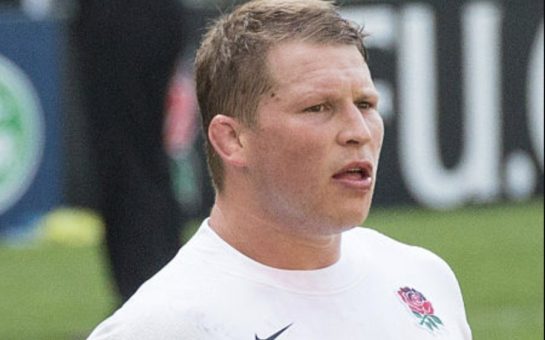The Six Nations title fight is wide open. Five teams have a realistic chance of winning, with the standard of the championship perhaps at an all-time high after an excellent Autumn Nations Series for the European countries.
Each member of the quintet has their own reasons to be optimistic, and also to be fearful.
Let’s evaluate the contenders, starting with the nation defending the crown…
Wales
The case for: Whether playing at a raucous Principality Stadium or being roared on by fanatical travelling support, Wales have a knack of saving their best for the Six Nations.
Just look at last year. Unfancied after a difficult 2020, Wayne Pivac’s men upset Ireland, Scotland and England not through dominant performances, but by finding a way to win when they were the less talented team.
Only a last-minute loss in France prevented a record-extending fifth Six Nations Grand Slam. The perennial over-achievers can never be ruled out.
The case against: Spirit and an underdog mentality may not be enough with Wales’ initial squad missing eight British and Irish Lions with a combined 726 caps.
Flanker Justin Tipuric will miss the entire tournament, while George North, Taulupe Faletau and inspirational captain Alun Wyn Jones are among those out for the start of the campaign at least.
By the time they return, their title hopes could have already diminished. Interim captain Dan Biggar faces a tough task, particularly with his inexperienced side travelling to Ireland on opening weekend.

Scotland
The case for: Scotland have steadily built under coach Gregor Townsend and have never been better positioned to win their maiden Six Nations title.
Their backline boasts world-class attacking talent in Stuart Hogg, Finn Russell and Duhan van der Merwe, and is matched by impressive depth in the pack.
Historic away wins last year against England and France, alongside victory over Australia in the autumn, showed that Scotland can compete with anyone.
The case against: Scotland received a reality check a week after that Australia triumph, as South Africa overpowered them at Murrayfield.
Though not expected to beat the Springboks, the loss suggested Scotland were not ready to challenge the top teams consistently, which is what this Six Nations’ exceptionally high standard will demand.
The fixture list is also tricky. Scotland begin with England at Murrayfield, where they have defeated the Auld Enemy only once since 2008, before tough trips to Cardiff and Dublin.

England
The case for: England are developing an intriguing young core to go with their strong set-piece. The new generation is led by fly-half Marcus Smith (aged 22) who plays with the requisite freedom to revolutionise England’s attack.
Alongside Smith, Freddie Steward (21) thrived in last autumn’s victory over South Africa and will start as first-choice full-back, while number eight Alex Dombrandt and scrum-half Harry Randall (both 24) are certain to feature this spring.
If coach Eddie Jones can get the familiar power game to mesh with this new wave, England will be tough to stop.
The case against: England endured terrible Six Nations under Jones in 2018 and 2021, as one disappointing defeat spiralled into an inexcusable losing run on each occasion.
Their opener against Scotland could therefore define their campaign, and they travel to Edinburgh without several key players.
Captain Owen Farrell will miss the tournament with an ankle problem, while stand-in skipper Courtney Lawes is unavailable this Saturday due to a concussion.
Manu Tuilagi is once again sidelined, leaving England light in the centres.
Throw in the absences of Jonny May, Jonny Hill, Sam Underhill and Anthony Watson, and England’s famed player pool will be tested to the limit.

Ireland
The case for: Coach Andy Farrell sacrificed a little structure for more dynamism to great effect over 2021.
A solid Six Nations preceded a commanding win over New Zealand in November, as Ireland’s quick-ball and adaptable gameplan toppled the All Blacks.
Their roster is deep, as familiar names like Johnny Sexton, Tadhg Furlong and James Ryan are accompanied by newer introductions such as Jamison Gibson-Park, Hugo Keenan and Caelan Doris.
With an injury-free squad and all four provinces thriving in Europe, there is lots to like about Farrell’s Ireland.
The case against: Despite the depth, the men in green might lack the physicality to compete with France or England.
Behind the scrum, they are hoping that Sexton’s 36-year-old body holds up for five matches. While Joey Carbery and Jack Carty are competent deputies at fly-half, Ireland will need their 101-capped skipper in the pressure moments.
They could also require a win in France to regain the trophy – a very daunting challenge.

France
The case for: After a decade in the doldrums, rugby’s great enigmas are back.
This side plays in the classic, care-free French style, as exemplified by Romain Ntamack’s already-iconic counter-attack from his own try-line in November’s 40-25 win against New Zealand.
Yet, the freedom does not create recklessness. Providing the platform is a bulldozing pack and discipline without the ball commandeered by defensive guru Shaun Edwards.
And then, of course, there is Antoine Dupont.
The 2021 World Player of the Year’s purposeful style, timely support runs from scrum-half and ability to bounce off tacklers twice his size make him the tournament’s must-watch player.
France, it seems, are poised to end their 12-year Six Nations title drought.
The case against: To pick nits is to be hypercritical, but France’s attractive style inevitably risks self-inflicted vulnerabilities.
For all their organisation and power, the free-flowing approach could feasibly fall apart for one game this championship, and that may be enough to shatter championship hopes.
Indeed, in last year’s tournament, France gained plenty of fans but lost to an out-of-sorts England and threw away a winning position at home to Scotland.
Until they prove entertainment can be married with consistency, there will be scepticism.

And what about Italy?
Italy, the tournament’s annual whipping boys, will not be winning the Six Nations title.
Instead of listing all the reasons why, keep an eye out for our broader discussion of Italy and the future of the competition later today.
Featured image credit: Calum404 – Wikimedia Commons




